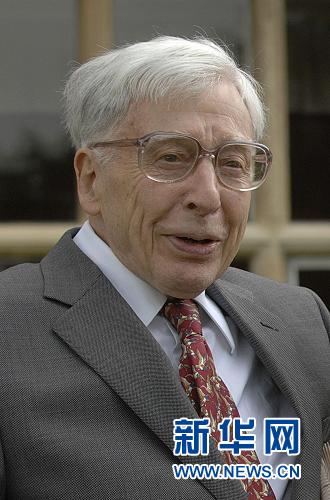October 4th: The 2010 Nobel Prize in Physiology or Medicine is announced.
Karolinska Medical College in Sweden announced on the 4th that it will award the 2010 Nobel Prize in Physiology or Medicine to robert edwards, a British physiologist, in recognition of his pioneering contribution in the field of in vitro fertilization technology.
This year’s unveiling ceremony was held in the "Nobel Hall" of Karolinska Medical College as usual, and the hall with a capacity of 200 people was as packed as in previous years. Goran Hanson, Secretary General of the Nobel Prize Selection Committee, first announced the winner’s name-robert edwards.
Hanson said that the in vitro fertilization technology created by Edwards solved an important medical problem, that is, treating a variety of infertility through in vitro fertilization.
Krister Hegg, a professor at Karolinska Medical College and a judge of the Nobel Prize in Physiology or Medicine, said that about 10% of couples in the world suffer from infertility, which brings pain and trauma to these families. The curative effect of simple drug therapy on many infertility is very limited, but all this has been solved with the emergence of in vitro fertilization technology. In vitro fertilization is a safe and effective method, and about 20% to 30% of fertilized eggs in vitro can eventually develop into fetuses. Follow-up research shows that there is no difference in health between children born by in vitro fertilization technology and those born naturally.
Edwards was born in Manchester, England in 1925. After World War II, he studied biology at the University of Wales and the University of Edinburgh, and received his doctorate in 1955. In 1958, he began to work in the British National Medical Research Center and began his research on the process of human conception. In 1960s, Edwards and Patrick steptoe jointly established the world’s first in vitro fertilization research center.
In vitro fertilization (IVF) technology is also called IVF technology. On July 25th, 1978, the first IVF in the world was born. In the next few years, Edwards and his colleagues further improved this technology and promoted it to the whole world. At present, about 4 million people around the world have been born through in vitro fertilization, and many of them have given birth to the next generation through natural means.
Edwards will receive a prize of 10 million Swedish kronor (about 1.46 million US dollars).
Biography of robert edwards
Robert edwards is now a professor at Cambridge University in England, and is known as the "father of IVF". He was born in Manchester, England in 1925 and served in the military during World War II. After the war, Edwards studied biology at the University of Wales and the University of Edinburgh, England, and received his Ph.D. in biology in 1955. His doctoral thesis was about the research on cultivating embryos in laboratory mice.
In 1958, Edwards entered the British Medical Research Institute and began his research in the field of reproductive medicine. Since 1963, Edwards has been working in Cambridge University, and together with Patrick steptoe, he has developed in vitro fertilization technology, that is, IVF technology. Based on this technology, the world’s first test-tube baby Louise Joy Brown was born in 1978. Subsequently, Edwards and steptoe jointly founded the world’s first in vitro fertilization research center-Bernhall Reproductive Medicine Center. Edwards has been the director of the research department of the center for many years, and also served as the editor-in-chief of several influential publications in the field of reproductive medicine.
Before winning this year’s Nobel Prize, robert edwards had received many honors. In 2001, the "father of IVF" won the Albert Lasker Medical Research Award, and more than half of the winners of this award won the Nobel Prize.

Robert edwards’s profile photo in Cambridge, England (photo taken on July 12th, 2008). Xinhua News Agency/AFP
关于作者